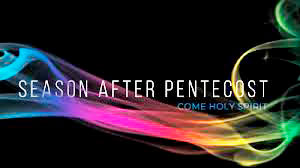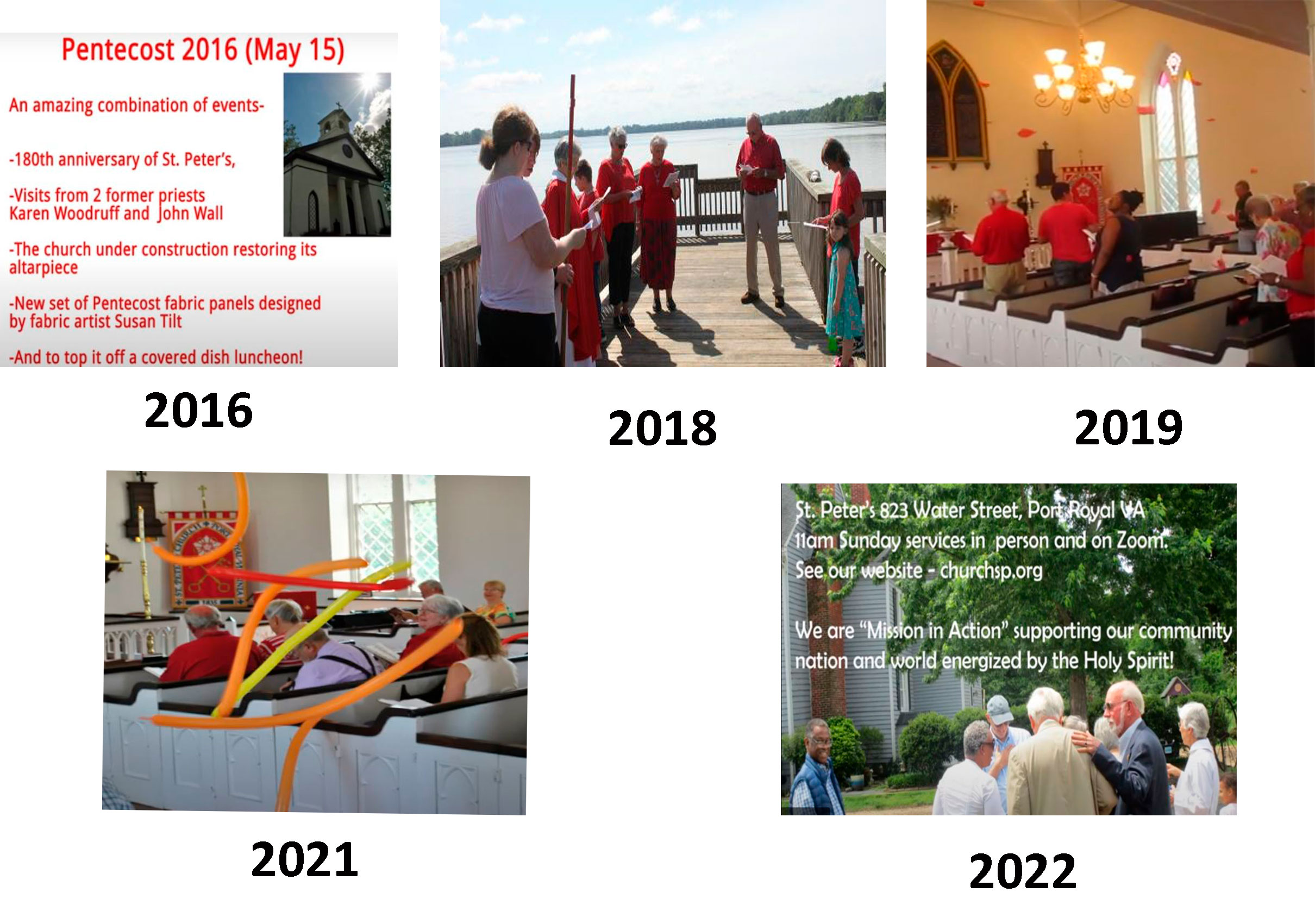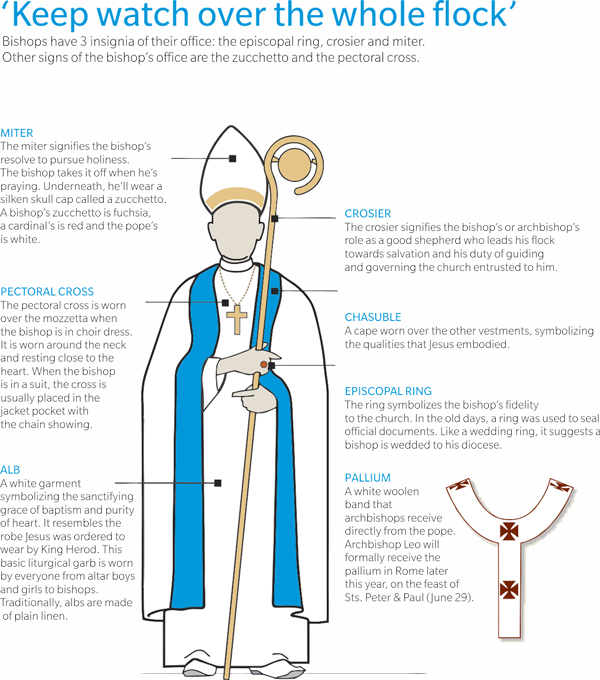Click here to view in a new window.
2024 Sun May 19
Thy Kingdom Come – Episode 6 – “Prayer Walking”

Prayer Walking – The God who walks with us. By Sammy Jordan
Prayer Walks. It’s a great way of connecting with our communities and connecting with God for them on a whole new level.
Prayer walking is not for the super spiritual. Prayer walking is for everybody. Prayer walking is very simple you don’t have to say or do anything other than invite God to go on a walk with you.
Scriptural basis
1 In Genesis it says Adam and Eve heard God walking in the garden and when we
walk and pray we need to remember that God walks with us for me being
physically present amplifies my sense of connection to both God and the people
and place I’m praying for I love.
2 Jeremiah 29:7 seek the welfare of the city where I have sent you into Exile and pray to
the Lord on its behalf for and, this is the bit I love, in its welfare you will
find your welfare. It inspires and encourages me to pray for bless and serve my community because my well-being and flourishing is connected with it.
Remember when you’re putting on your shoes you are putting on shoes of peace!
How can you pray for peace and blessing for your community as you walk? Notice where God pro prompts you to pause and pray stop outside neighbors doors maybe use their their names as you pray for peace to enter their home. Do the same thing for
shops schools and businesses in your area. I often use road signs and markings to help me pray.
Crossroads remind me to pray for people with decisions to make, stop signs or red traffic lights for people who feel stuck, amber lights and also bus stops for people who are waiting, and green lights for people who are going people who are responding and doing something new.
I also love to use nature it reminds me of growth what is God growing in our communities.
Chancellor Village Eucharist, May 14, 2024
The priests in the Rappahannock Region of the Diocese of Virginia hold a Eucharist service every Tuesday at 1pm for the retirement community of Chancellor Village, just west of Fredericksburg, VA. First, a few photos from May 14 and then the Gospel and sermon reflecting Gospel on Easter 7.
A. Photos
B. Gospel and Sermon
The Little Falls Bluegrass Band returns for Pentecost

The Little Falls Bluegrass Band from Stafford returns this Pentecost to entertain us as they did in 2023.
The gentlemen have played bluegrass music for many years in many bands, including this one. They have played for weddings, social and church services. They are tight both in music and friendship – and it shows! Several attend Community Baptist Church in Stafford.
Pentecost, an Ancient Festival

Pentecost was the second of the three great annual festivals of Israel, the others being Passover and the feast of Tabernacles. The festival was often called the feast of Weeks because it took place seven complete weeks, or 50 days, after the Passover. Jews from all over the world came to Jerusalem for this festival, more than for any other. The day was one of solemn convocation when no work was to be done. The people offered the first loaves of fine flour made from the justharvested late grain crops. Other sacrifices were offered in the temple and a meal was prepared with freewill offerings from the people. To this meal the widows, orphans, the poor and the stranger were invited.
On this festive day, in the year of Jesus’ death and resurrection, the Holy Spirit was bestowed upon the apostles. In Acts, Luke describes the sound of a mighty rushing wind and the sight of tongues of flame resting on the head of each apostle. What a transformation took place in these men and women! They were truly “clothed with power from on high” (Luke 24:29). Out into the crowd they went, boldly proclaiming the “mighty works of God” (Acts 2:11). One of the gifts of the Spirit— the gift of tongues—enabled the polyglot crowd to hear the apostles speaking, each in his or her own language.
Peter, no longer afraid, boldly proclaimed the event to be a fulfillment of the promise of God made through the prophet Joel: “I will pour out my spirit upon all flesh… whoever calls on the name of the Lord shall be saved.” Acts 2:17a, 21). Then he preached the first Christian sermon, witnessing to the resurrection of the Messiah “this Jesus whom you crucified” (Acts 2:36). From the crowd of Jews and converts, three thousand heard his message, were baptized, and became followers of Jesus.
Acts, which is often called the gospel of the Holy Spirit, is full of stories that show the power of the Holy Spirit working in the early Church. It was the Spirit who gave life to the early Church; that same Spirit gives life to us in these latter days.
Pentecost is a time of renewal for Christian believers. Through studying the story of Pentecost, many seek and pray for spiritual gifts for the church during this time of holy celebration. There is a renewed focus on evangelism, empowerment from the Holy Spirit, deeper intimacy with God, and fellowship. For Christians, the celebration of Pentecost imparts faith, hope, a sharing of community, and an awareness of a purpose much greater than ourselves.
The Holy Spirit came down at Pentecost

We know what did the Holy Spirit did in Jesus time at Pentecost. It energized them, bound them together gave them a mission to extend the Gospel into foreign lands
Pentecost is a season, not just one day. We have a long time in the church year to work with it ( Pentecost is the longest season until Advent. The celebration should be and is a part of Pentecost Sunday.
And after that?
We have to know who we are. Based on that what is our mission?
Who are we ?
Luke casts the church as a spirited community of bridge-builders, visionaries, and dreamers, male and female, slave and free (Acts 2:17)
Hopefully, our churches have “visionaries and dreamers” but also those that can organize to implement the change, work for funding if necessary and report back what we done. (Thank goodness we have no slaves.)
What is our mission?
Special Pentecost videos
Pentecost represents the end of the Easter Season and a time of transition. Besides being the “Birthday of the church” and the arrival of the Holy Spirit, it is a feast day. Yes a day to have fun!
Over the years we have had special events on Pentecost such as Prayer Walks, picnics, receptions and special music. Some guests have appeared as well. We have also had some pictures and videos. Some videos just take stock of who are while others record part of the Pentecost services

Here are 5 videos through the years beginning in 2016
1. 2016 Church with with front piece replacement and 3 priests! A wild gathering at Pentecost!
3. “Sweet, Sweet, Spirit”, 2019
Pentecost, Year B
I. Theme – The coming of the Holy Spirit

Window from St Aloysius’ church in Somers Town, London
The lectionary readings are here or individually:
First Reading – Acts 2:1-21
Old Testament – Ezekiel 37:1-14
Psalm – Psalm 104:25-35, 37 Page 736, BCP
Epistle –Romans 8:22-27
Gospel – John 15:26-27; 16:4b-15
Pentecost is a milestone in the story of salvation. It was on that day that the Holy Spirit was poured out upon the believers in an upper room in Jerusalem as they awaited the baptism Jesus told them they would receive. Jesus had promised this event just before He ascended into heaven.
"And there appeared unto them cloven tongues like as of fire, and it sat upon each of them. And they were all filled with the Holy Spirit, and began to speak with other languages, as the Spirit gave them utterance."
The symbol of fire is important for Pentecost.Fire has long represented God and the presence of his Holy Spirit. Fire consumes but is its own energy force. hat energy is around action and for the church, mission. Acts is about mission, about speaking, proclaiming, the good news to people everywhere, in languages (and language) they can understand. This is the day in which the mission of the church was given birth.
Commentary by Rev. Mindi
The familiar passage of Ezekiel prophesying to the dry bones reminds us that breath, wind and Spirit are all connected. They are the same words in Hebrew, the same words in Greek. The wind from God comes over the waters and breathes life into creation. The breath of God breathes into the human being and the human being becomes alive in Genesis 2. And the Spirit gives new life, eternal life, beginning in Ezekiel and echoed in John 20 and Acts 2 and elsewhere in Scripture. The celebration of the coming of the Holy Spirit is the recognition that the breath that gives us life also gives us eternal life, for breath, wind, and Spirit are from God. Ezekiel is given a task that seems impossible, but God is showing Ezekiel that even out of death new life can rise through the power of the Spirit.
The Psalm is a hymn of praise, offered in the course of Temple worship, probably at the Autumnal harvest festival, given its theme of creation. It is a poem praising God and celebrating the order, the balance and majesty of creation reflecting upon God’s mighty power. Psalm 104 speaks to the breath of creation and God’s wondrous work of breathing life into the world and all of creation. Not only do all things live and die, but God renews the face of the ground (vs. 30), breathing new life into the earth. We see this in the turning of the seasons year after year, but we also see this work in the re-creation after disaster. We see the waves reshape the beach after a hurricane; we see the forests regrow after fires and volcanic eruptions–life returns, new life is begun.
Acts 2:1-21 is the familiar Pentecost story by the author of Luke, where the disciples are gathered in Jerusalem, and the wind from God blows through the house they are gathered in. We all know the story. We use the color red to represent fire, the image of flames above their heads. But we really don’t know what the heck happened there. Why this happened in this place, at the spring harvest festival? What we do know is that this story opens the door for ministry outside of the disciples own people–God’s message is for all. And the vision of Joel is renewed–all people, young and old, slave or free, male or female–and as Paul will add, Jew or Gentile–have the opportunity to be filled with God’s spirit and participate in God’s reign and vision for new life.
Romans 8:22-27 reminds us that the Spirit helps us in the waiting time. Through our Lectionary cycle we relive the history of faith, and as we go into the season after Pentecost, we are in a great period of waiting. There are no more major church holidays until Advent. We have a long time of waiting, and in our lives and in the world, we are still waiting for Christ to return, for Christ to enter our lives in a new way. Through the presence of the Spirit–through the witness of God’s love by our love for one another, our work for God’s justice, and our work for peace–we live into God’s hope through the power of the Spirit. The Spirit helps us in this time of waiting, and continues to remind us God is not through with us, or the world, yet. God is continuing to do something new
John 15:26-16:15 explains the writer of John’s view that the Spirit’s work is not only to bring eternal life, but a newness of life now. We are called to testify to the light, as John shares in chapter 1, and our lives are to be that testimony, that living witness. How we live our lives shows whether we live with the Spirit within us. We are called to love one another, as Christ first loved us, and the witness of this love is our lives, which is full of the Spirit. If we do not love one another, we do not love God, and we do not live with the Spirit in our lives.
Confirmation and Reception – What is it ?

On Sunday, May 19th, The Day of Pentecost, The Rt Rev Gayle Harris, Assisting Bishop in The Episcopal Diocese of Virginia, will join us at St Peter’s for a joyful time of worship and celebration and for Confirmation and Reception.
Jennifer Gamber explains that “Confirmation is one of the Church’s seven sacraments. Sacraments are “outward and visible signs of inward and spiritual grace, given by Christ as sure and certain means by which we receive that grace.” In the sacraments we recognize God’s active presence in our lives.
The Episcopal Church recognizes the two great sacraments of the Bible, which are baptism and Eucharist, and five sacramental rights, which include Confirmation. For Confirmation, the outward visible sign of the inward and spiritual grace is the laying on of hands by the bishop, and the inward spiritual grace is the strengthening of the Holy Spirit.” (see Jennifer Gamber’s book, Your Faith, Your Life, An Invitation to the Episcopal Church for more details.)
The Book of Common Prayer reminds us that “in the course of their Christian development, those baptized at an early age, are expected, when they are ready and have been duly prepared, to make a mature public affirmation of their faith and commitment to the responsibilities of their Baptism and to receive the laying on of hands by the bishop.”
“Those baptized as adults, unless baptized with laying on of hands by a bishop, are also expected to make a public affirmation of their faith and commitment to the responsibilities of their Baptism in the presence of a bishop and to receive the laying on of hands.”
For those who have been confirmed in another denomination, the Book of Common Prayer provides for the formal reception into the Episcopal Church, which honors the commitment already having been made in the person’s previous denomination.
Visual Lectionary Vanderbilt, Day of Pentecost, May 19, 2024
Click here to view in a new window.
The Bishop here at Pentecost

Since Bishop Harris will be here May 19, it is a good chance to look at how we got bishops in the first place. Without distinctive “gear” we wouldn’t know them from regular priests.
Our church name, Episcopal is taken from the collective group of bishops in a church.
The concept of a bishop developed gradually in the early church as an overseer but by the 1st century became established as the head of the house churches in a city. The bishop became less associated with a particular church. A single bishop was expected to lead the church in each center of Christian mission, supported by a council of presbyters (a distinct and subordinate position) with a pool of deacons
Faith Magazine provides a good run down of the bishop adornments:
Crosier: The bishop carries a tall hooked staff called a crosier. In the Western church, it is shaped like a shepherd’s crook to symbolize the bishop’s role as the shepherd of his flock. Its roots go back to the walking staffs of travelers at the time of Christ, and crosiers dating from as early as the fourth century have been found in the catacombs. By the Council of Toledo in 633, the crosier was mentioned as a liturgical implement.
Miter: The miter is the tall peaked hat that bishops wear. It has its origin in the cap with headbands worn by athletes of ancient Greece. It took its current form in the 12th century. The miter/s two shield-shaped halves are said to represent the Old and New Testaments. Two strips of fabric called lappets hang down the back. The lappets were originally designed to be tied around the chin to prevent the miter from falling off while the bishop rode on horseback. The miter is laid aside when the bishop prays, and underneath it he wears a zuchetto, a skullcap originally designed to keep hair oil off the miter.
Pectoral Cross: The bishop wears a cross called a pectoral cross. Its name derives from the Latin word pectus or “breast.” It is worn differently, depending on the bishop’s garments. For example, if he is in a suit and collar, the pectoral cross is usually placed in the vest pocket, with the chain showing. That’s why you’ll often see the bishop with a gold chain across his chest. The cross can hang from either a chain or silk cord, and many of them held relics of the True Cross. The stone assigned to bishops and archbishops is the amethyst, and many pectoral crosses are adorned with one or more.
Episcopal Ring: Bishops wear a ring that has multiple layers of meaning. It has been a symbol of authority and jurisdiction since the third century. The ring also symbolizes the bishop’s marriage to the church, his spiritual parentage and the inviolable faithfulness with which he will teach and protect his flock. This onyx ring was used by Bishop Povish.
Sunday Links, May 19, 2024
Pentecost, May 19, 11am, Day of Pentecost, Bishop Visitation, Confirmation and Reception
Lector: Johnny Davis
Acolyte: Arthur Duke
Chalice Bearer: Andrea Pogue
Altar Clean up: Everyone
Coming up!

